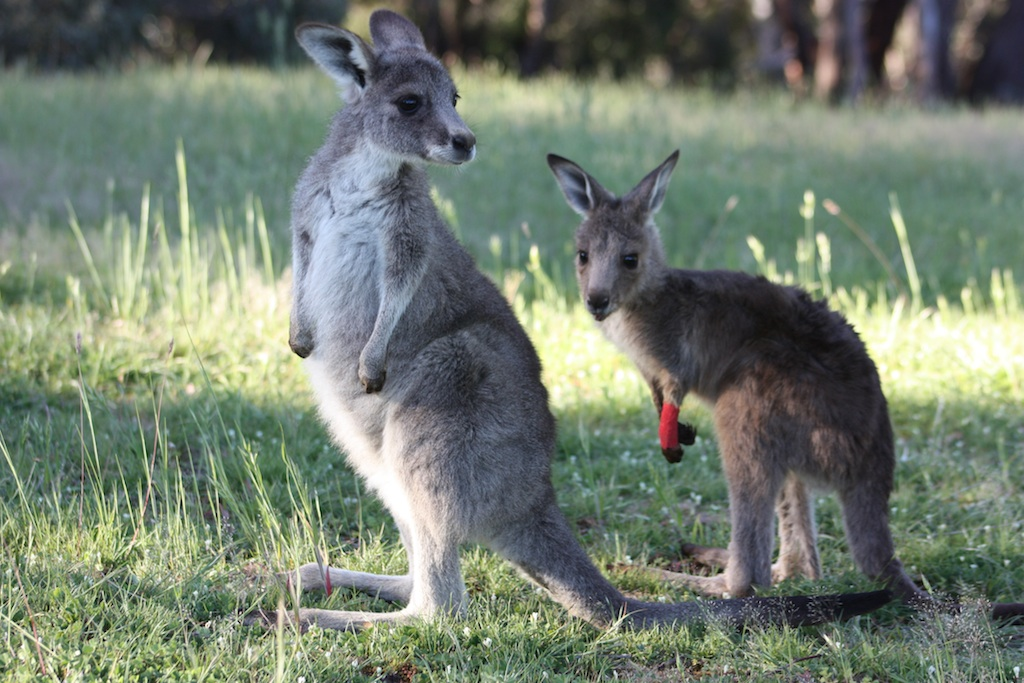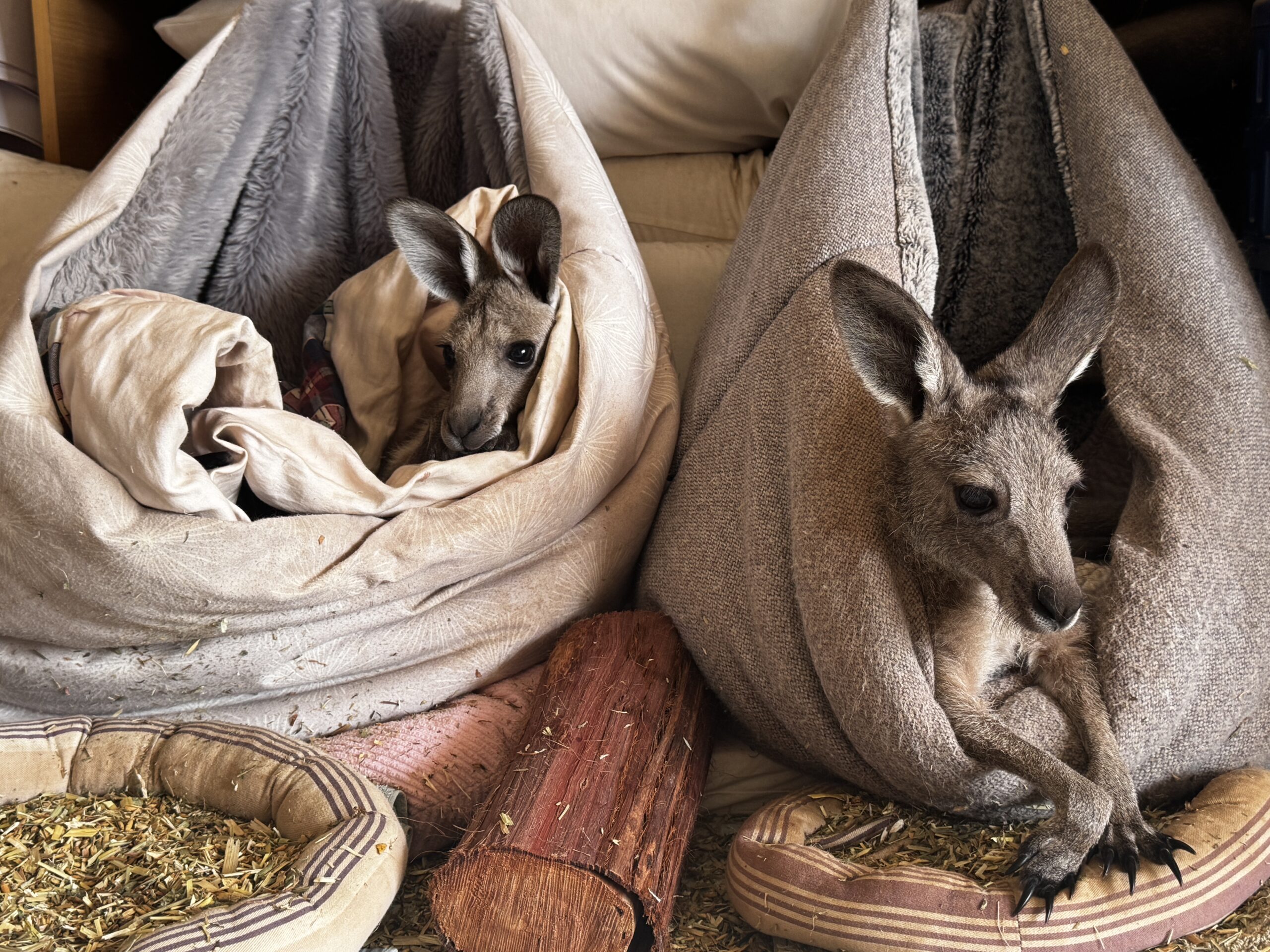Data on NSW licencing reveal the extent of Government-sanctioned destruction of native animals in the state | Conservation groups and wildlife carers to provide evidence of the extent of cruelty at inquiry into licensed killing SYDNEY (5 February, 2026)—Humane World for Animals Australia (previously Humane Society International Australia) will...
Moves to lift global ban on commercial whaling a major concern, says Humane Society International
As the 68th meeting of the International Whaling Commission began yesterday in Slovenia, animal protection and conservation non-profit Humane Society International warns that the very future of the IWC and the global moratorium on commercial whaling could be in jeopardy.
The global economic crisis, the pandemic and the exit of Japan―a whaling nation and formerly a major IWC funder―have created a serious budgetary emergency at the IWC. Efforts to reduce costs, including selling the IWC Secretariat headquarters in Cambridge, have stalled. The financial survival of the IWC as the only international body that focuses on cetacean conservation hangs in the balance at a time when almost half of the world’s known species, subspecies and subpopulations of cetaceans, are listed as Critically Endangered, Endangered or Vulnerable. The negotiations to balance the budget will be critical for the future of whales.
Rebecca Regnery, senior wildlife director at Humane Society International, said: “Whales face myriad threats from human activities including whale hunting; fisheries bycatch; chemical, plastic and noise pollution; ship strikes; habitat loss and the urgent climate crisis. If the IWC were to collapse now, everything it has done to establish and maintain the global whaling moratorium, the Southern Ocean sanctuary and multiple other scientific and conservation work would also collapse. The framework the IWC has provided for global cetacean conservation and management would disappear, leaving these ocean giants even more vulnerable in increasingly challenging and hostile seas.”
The threat to the IWC’s vital work, and even the global moratorium on commercial whaling, are at further risk because the IWC is considering allowing voting rights for nations even if they have failed to pay their membership fees, a move that would largely benefit pro-whaling countries. While the proposal aims to assist countries hit hard by the pandemic, many of which rely on tourism, it could tip the balance on some key pro-whaling draft resolutions including one by Antigua and Barbuda to lift the commercial whaling ban.
Regnery says: “The global moratorium on commercial whaling, which has spared the lives of hundreds of thousands of cetaceans and been instrumental in pulling many species back from the brink of extinction, is in very real danger. Scrapping the moratorium is what Japan has been pushing for since it was first adopted in 1982. Ironically, although Japan has withdrawn from the IWC, its pro-whaling influence is as menacing as ever via country allies beholden to Japan that continue to push its dangerous agenda. This year, if many more pro-whaling nations are allowed to vote, it could be the beginning of the end for global whale protection. So we are urging all whale-friendly countries to assemble at the IWC ready to fight once again to save the whales.”
Other top IWC priorities for Humane Society International include:
- Proposal aimed at overturning the 40-year-old ban on commercial whale killing. The draft resolution had been proposed by Antigua and Barbuda, close allies of Japan which has sought to scrap the moratorium since it was first adopted in 1982.
- A marine plastic pollution draft resolution by the European Union that, if adopted, will provide critical IWC support for international negotiations on a global plastics treaty to tackle the serious threats to cetaceans including entanglement and ingestion, both of which can also lead to strandings and death.
- A proposal to establish a South Atlantic Whale Sanctuary by Argentina, Brazil and Uruguay. The IWC has considered this proposal many times at past meetings, but it has consistently been blocked by pro-whaling nations. However, due to climate change and the biodiversity crisis, establishment of this sanctuary is increasingly important for the continued survival of marine mammals and our oceans.
- A food security proposal by Gambia, Guinea, Cambodia, Antigua and Barbuda, countries very closely aligned with Japan. None of these countries provide any evidence that they rely on whale meat for subsistence or national food security. Conversely, whales kept alive in the ocean may provide financial and therefore food security and poverty alleviation to communities reliant on whale watching income, as well as contributing to healthy fish stocks as marine ecosystem managers.
- A newly developed Cetacean Welfare Assessment Tool which will be presented at the meeting. We foresee this tool being extremely useful for our work and others for assessing welfare threats and solutions.
- The fate of Greenland hunts, especially of killer whales which are in need of a full population assessment, harbour porpoises which may be overhunted especially when combined with the threat of bycatch, and narwhals which are being excessively hunted causing changes to life history and population dynamics. The North Atlantic Marine Mammal Commission has recommended a zero-hunting quota stating that narwhals in Greenland are at “high risk of extirpation of the stocks if harvest at any level continues.” The 2022 hunting quota for narwhals in Greenland is 50. Atlantic white-sided dolphins are also hunted in high numbers in Greenland, Norway, Newfoundland, Canada and the Faroe Islands (where direct take is especially high and has occurred without a full assessment).
Humane Society International will have a team of experts at the IWC meeting available for interviews, as well as non-attending experts for remote interview from Australia.


